The Odd Romance of a True Craftsman
The Odd Romance of a True Craftsman: An Anthem on Doing Things the Hard Way
This essay appeared in the February 27, 2020 edition of The Anchorage Press. The Odd Romance explores the deep roots of craftsmanship and the ethos of an Anchorage beer brewer by the name of Dave Parker.
Not far from the Alaska Railroad yard, close to the muddy banks of Ship Creek, Dave Parker commutes to work, passing through a seldom seen landscape of trucking companies, scrap yards, and warehouses, on his way toward a metal sided building that he has faithfully driven to every week for the last twenty years.
His day begins, performing what at first looks like a mundane routine. He disassembles stainless steel parts, scrubs them with sanitizing solutions, and rinses them with hot water. He reassembles the parts. He moves materials from one place to another. He makes calculations. He pushes buttons. He watches. He waits. And he does all of that, over and over again.
But as with all dichotomies, there’s more to the story. Embedded within Parker’s routine is a sophisticated alchemy—a blend of artistry, craftsmanship, and biology—making craft beer.
But this isn’t another sappy story about the virtues of Alaskan beer, more than an anthem on people who devote their lives to an obsession, quite literally, with doing things the hard way. Like Dave Parker, content to lose himself in a creative process that elicits angst as much as pride, a sense of accomplishment as much as failure, embroiled in the endless pursuit of unattainable perfection.
This is the odd romance of a true craftsmen. A virtuous ethos, a quiet rebellion against mediocrity, where just doing a good job isn’t nearly good enough. The anthesis of the compromise we constantly make with ourselves—how we’ve learned to accept a mediated version of authentic experience, wanting things to be easy, defined by the convenience of many choices—leaving quality so diluted that we’re left craving even more of the same.
“This is the odd romance of a true craftsmen. A virtuous ethos, a quiet rebellion against mediocrity, where just doing a good job isn’t nearly good enough. ”
Like more flavors of bad beer, more drive-up-coffee stands, more and faster everything. More computer algorithms to match us with the perfect partner, or the most suitable wine. Prepackaged. Precooked. Ready to eat.
But I digress.
The fact is, discerning Alaskans are content to enjoy Parker’s beer every day, and some even drink it irrespective of any sort of back story that might inform their experience. But the irony is Parker doesn’t want to satisfy people. He wants to inspire them. To broaden their thinking.
Parker’s attitude might well be part of the new terroir of craft beer.
Inside the brewery there’s all you might imagine: beautifully crafted stainless steel tanks fill the building from floor to ceiling. A network of large water hoses crisscross a nearly sterile concrete floor. Kegs line a 30ft high wall. Neatly stacked hardwood casks contain stouts and barley wines, aged till they reach the zenith of flavor. And juxtaposed against the monochromatic brewing architecture is an orchestration of effort by an eclectic, and eccentric, crew of guys wearing frayed Carharts and XtraTuf boots.
It’s a laid back atmosphere where an intense process unfolds, inextricably associated with the intoxicating aroma of mashing grains and fermentation. Like sitting down for breakfast in a friends cabin, a huge stack of warm sourdough pancakes in front of you, laying in a puddle of maple syrup. Yes, it smells that good.
It was a cold winter day when I first showed up at Broken Tooth Brewing, and it was the first time I had ever met Dave Parker, bald and bearded, a forty-something who seemed unfailingly stoic until I got to know him. An Alaskan archetype, cards held close to his chest, wanting to get a read on you before he opens up.
At first I merely had an interest in the “people behind the scenes” and Parker agreed to show me around. I love craft beer and so it was a good excuse to get a crash course from some willing brewers.
About an hour into my tour I realized the brewing process reflected a rare kind of intention, like that of a woodworker patiently sanding a custom tabletop so the authentic character of the wood is showcased.
“Truth to Materials,” some say, “the inherent nature of things should not be hidden.”
Similarly, there was something profound about the intensity of Parker’s attention to detail, minding the nuances of just a few basic ingredients. A simple process, but incredibly easy to screw up. Unlike a lot of other things in life, mistakes making beer cannot be covered up.
After a couple of hours, I finally asked Parker if he could explain why he was so passionate about his job.
His answer set me off on an unexpected course of research, finding that I knew little about the history of craftsmanship.
I learned about old ideas that have everything to do with today’s microbreweries, and how the modern definition of “craftsman” belies a complex subject with rich origins involving capitalism and the industrial revolution.
I began to realize that modern craft brewers aren’t much different from craftsmen and artists in the late 1800’s who responded to the advent of the industrial revolution by developing strict standards for their chosen trades. In short, there was a resistance by those who preferred traditional methods and a strict aesthetic code. These were craftsmen making things of beauty, often functional works of art, and making them with the intent of honoring their materials, methods, and a unique culture.
Despite their efforts the industrial revolution proceeded like an unstoppable tide, replacing quality with manufacturing capability and volume of units made. But the vestiges of that movement lived on, later spawning the same thinking that led to contemporary, functional art, and you guessed it, the creation of craft beer.
These discoveries left me wondering if a gnawing discontentment resides in the souls of true craftsmen, those who embody a collective DNA that spans generations, including Parker, who I’d come to know better and even be friends with.
“These discoveries left me wondering if a gnawing discontentment resides in the souls of true craftsmen, those who embody a collective DNA that spans generations”
Understanding the roots of craftsmanship helped me sort out his response.
The truth is—when I asked Parker why he was so passionate about his job he didn’t have an answer, so much as expressing a conundrum.
Standing there in the brewery with him, I felt confident that poetic waxing would follow, an explanation about the care and patience I was able to observe, his meditation on process.
It wasn’t that he didn’t care about my question, so much as being unable to find an answer that fit. And that moment defined everything.
I realized the shortcoming was mine—wanting an easy answer to a deeply personal, philosophical question:
Why does anyone do what they love?
It occurred to me that the essence of one’s purpose might actually transcend readily accessible thought and language, existing in a more spiritual realm, where the manifestation of one’s vision of perfection becomes secondary to a life of work trying to get there.
It took me a while, but I finally began to understand that Parker’s actions are his vocabulary. The answer I wanted was in front of me, in a unique form.
Which brings us to a caveat. Earlier in Parker’s life there was a time when he didn’t even know he was a craftsman. He didn’t wake up and decide he needed to brew craft beer, or become an amazing cook, or a purveyor of gastronomic experience. Over twenty years ago he was taking college classes because he didn’t know what else to do. Nothing was clicking, he couldn’t see a path forward. He felt like school was a waste of time.
Then he got a phone call.
There's a saying that “art finds the artist,” and that’s what happened to Parker. He started by cleaning brewery floors, doing deliveries, and for a couple of years he never made any beer at all.
Now, he’s artistically expressing a blend of alchemy that thousands of Alaskan’s enjoy every day, and just as important, he’s part of a quiet revolution resisting a race to the bottom.
My guess is that anyone who believes Alaska’s best resources are oil and minerals has never worked really hard with their hands. Or worn a heavy tool belt for weeks on end, watching as their sweat turns into a beautifully built house. And probably never has put their soul into cooking for fifty hungry workers. Or pulled slippery salmon from a set net, elbows and shoulders aching from tendonitis.
The problem with an outcome driven society is we risk losing sight of our most prized resource: people.
Like Dave Parker, content to work behind the scenes, devoted to his craft, never accepting anything short of his very best.
What seems good for the bottom line is sometimes a Faustian Bargain, swapping the irreplaceable for the disposable.
Dear Alaska: the next time you crack a hand-crafted beer, take pride in knowing someone worked really hard to make it for you. It’ll taste that much better.
Cheers.
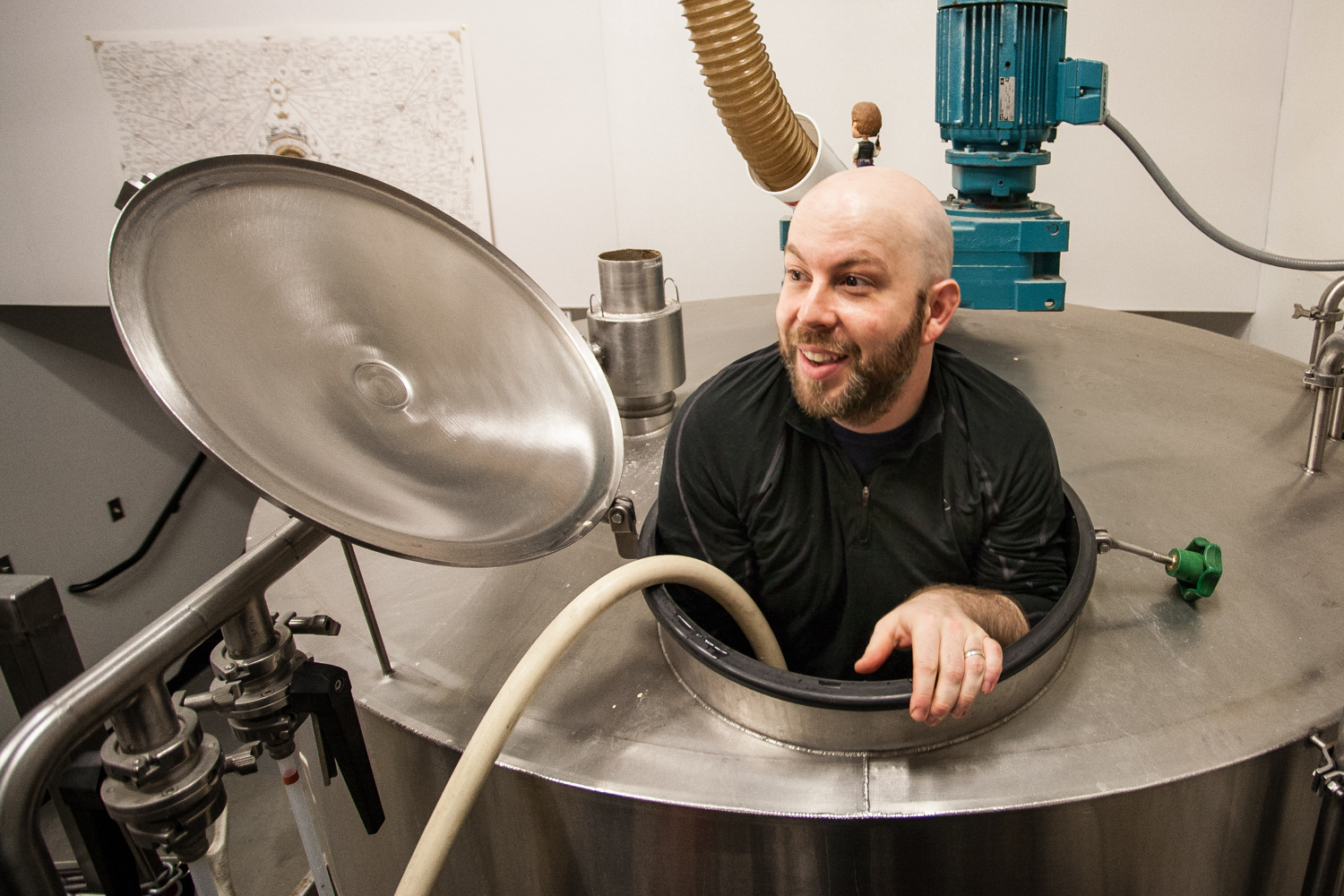
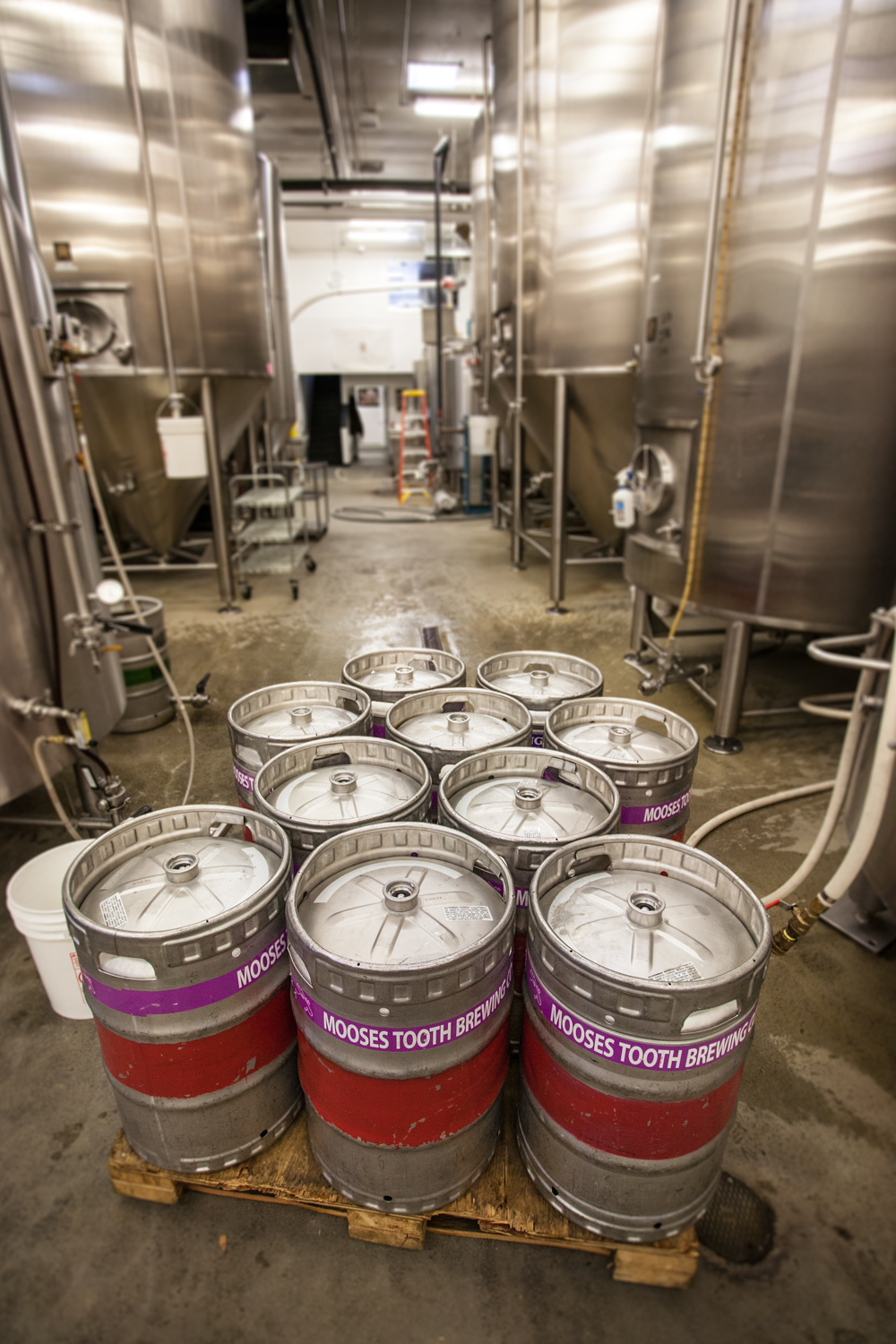
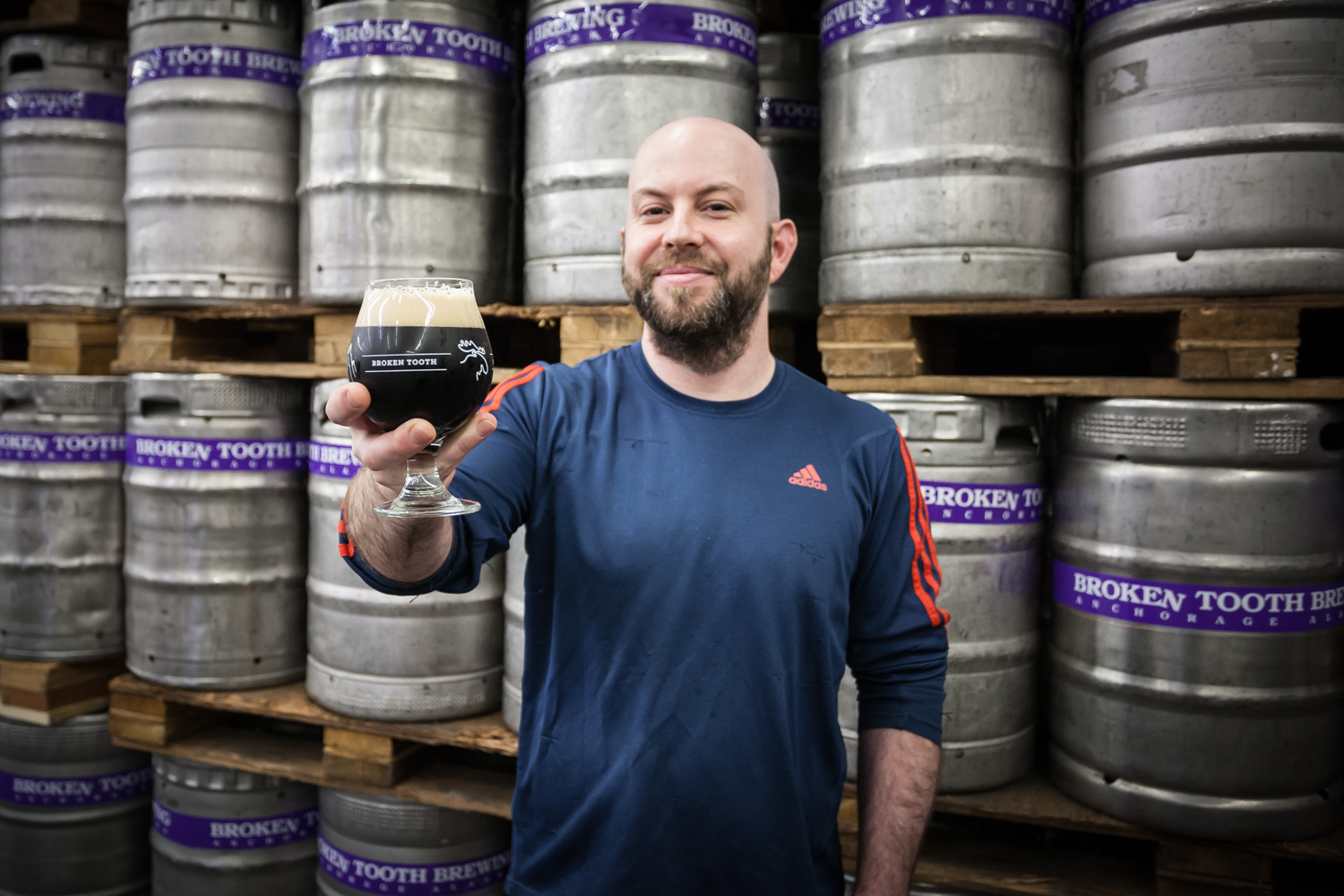
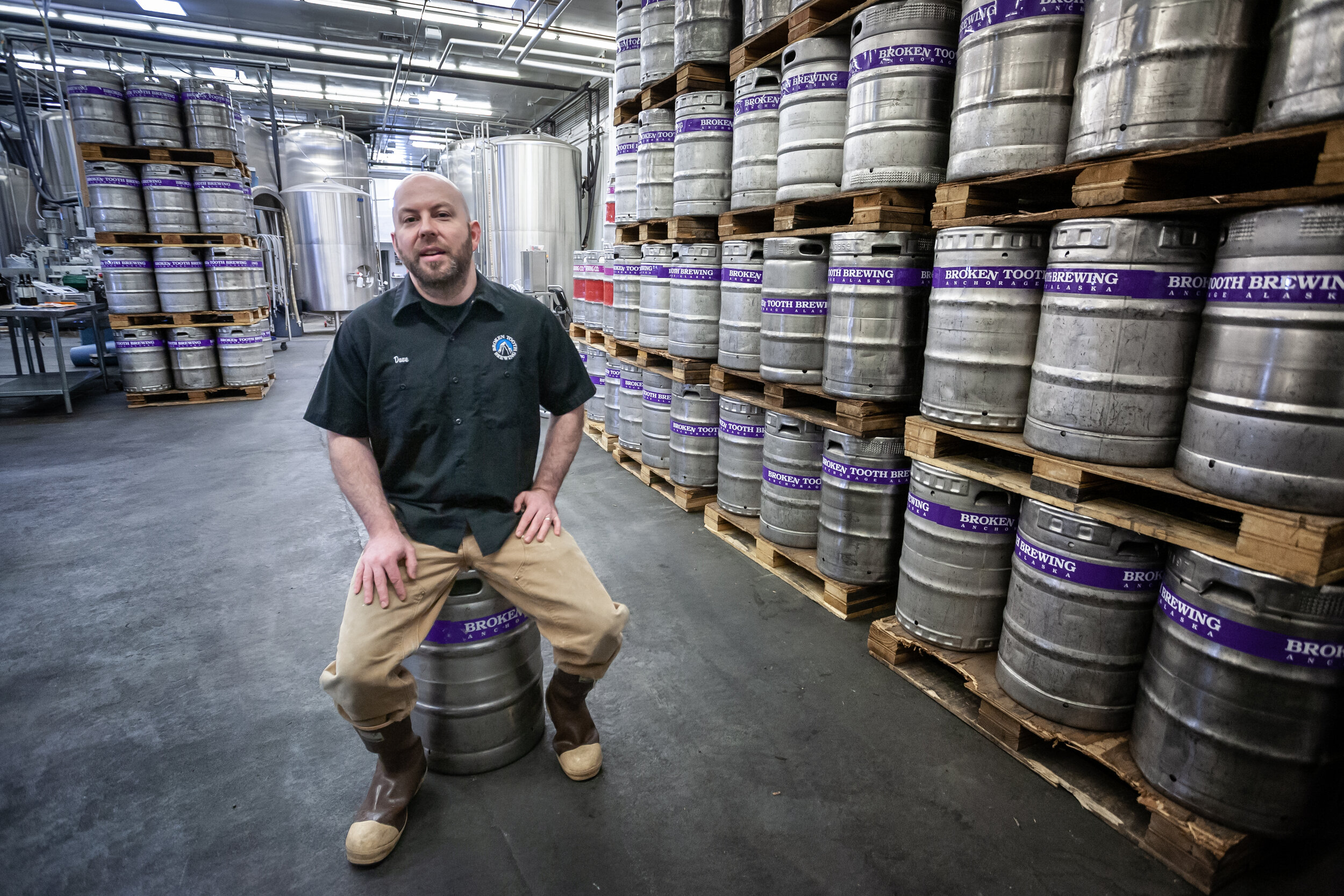
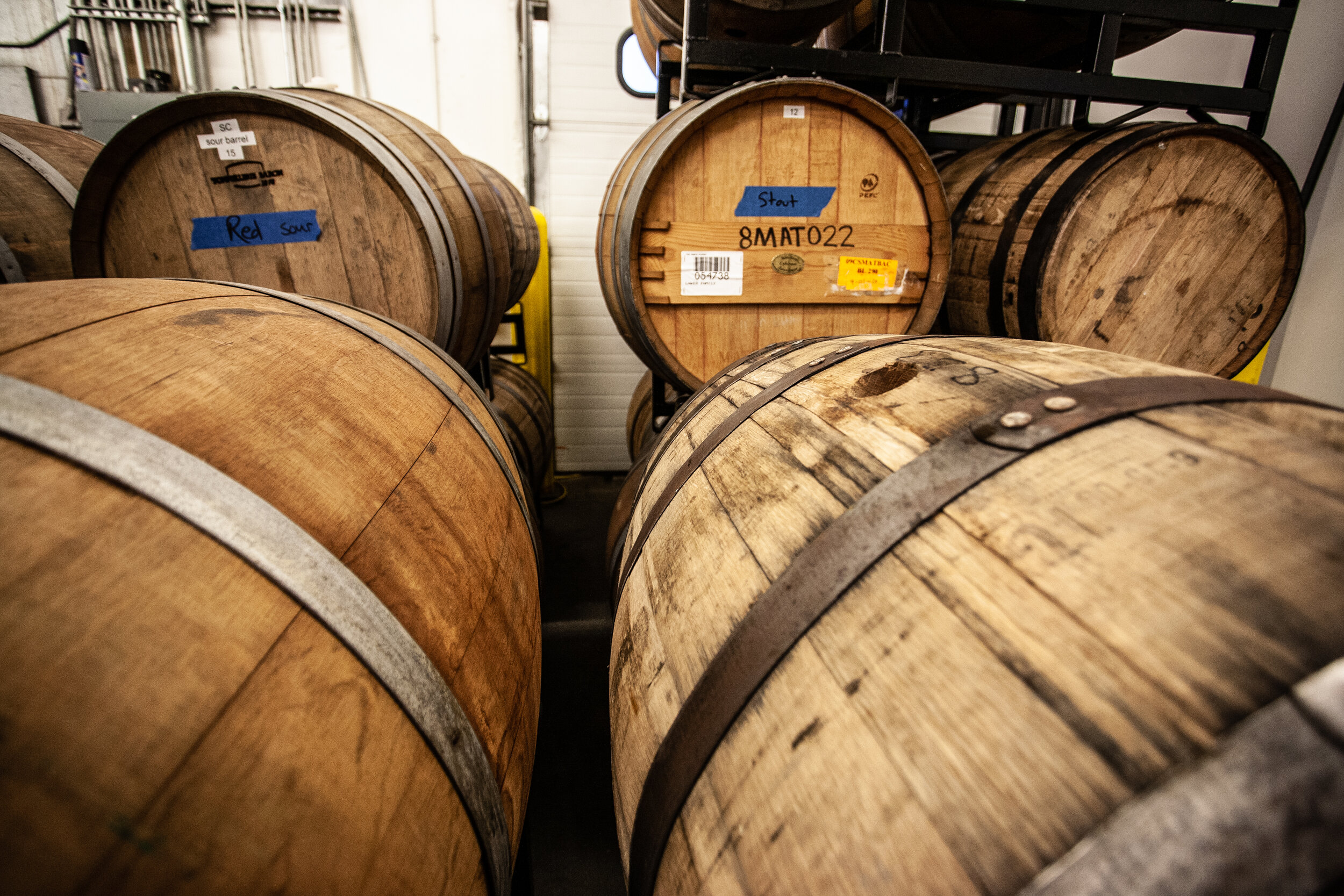
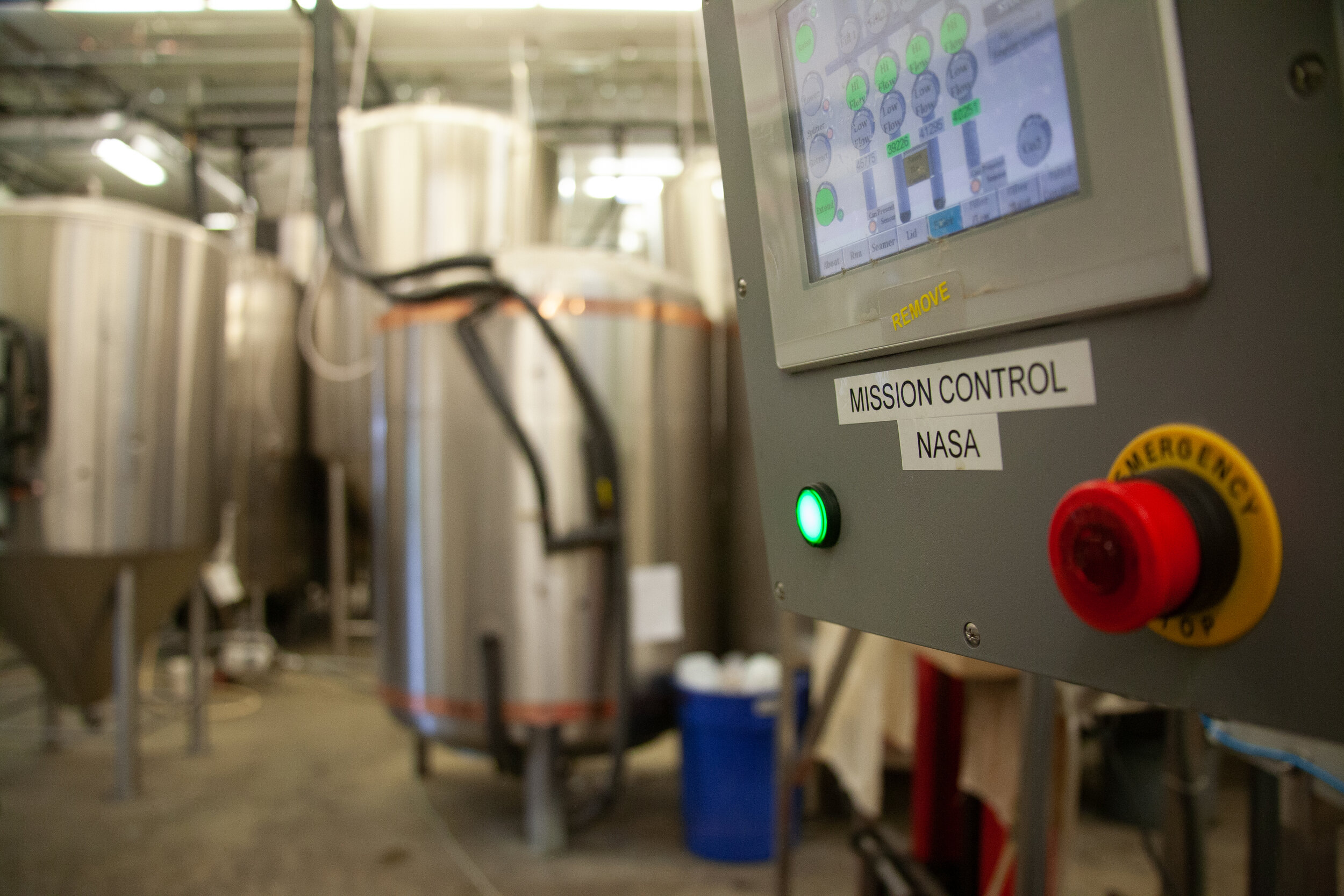

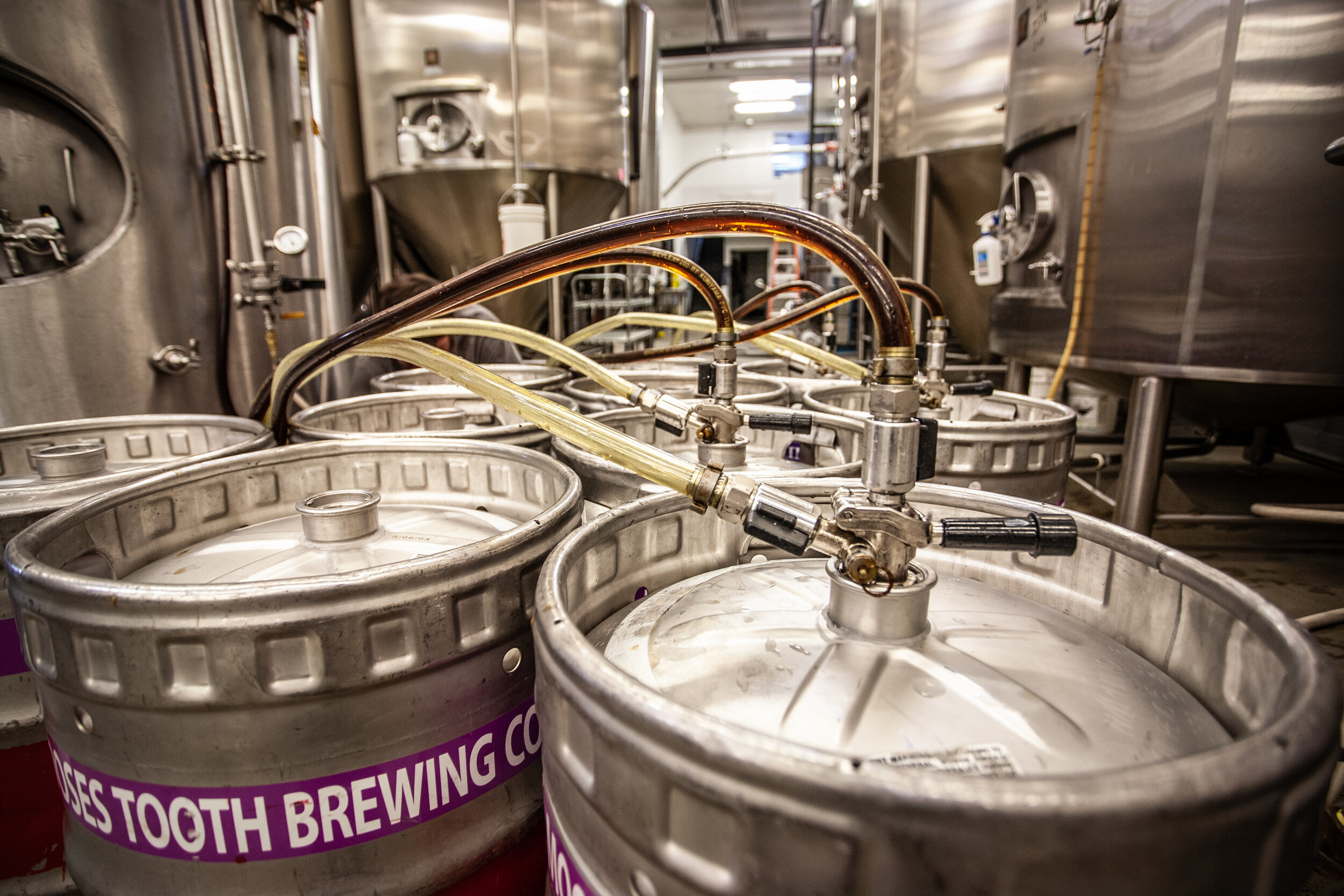
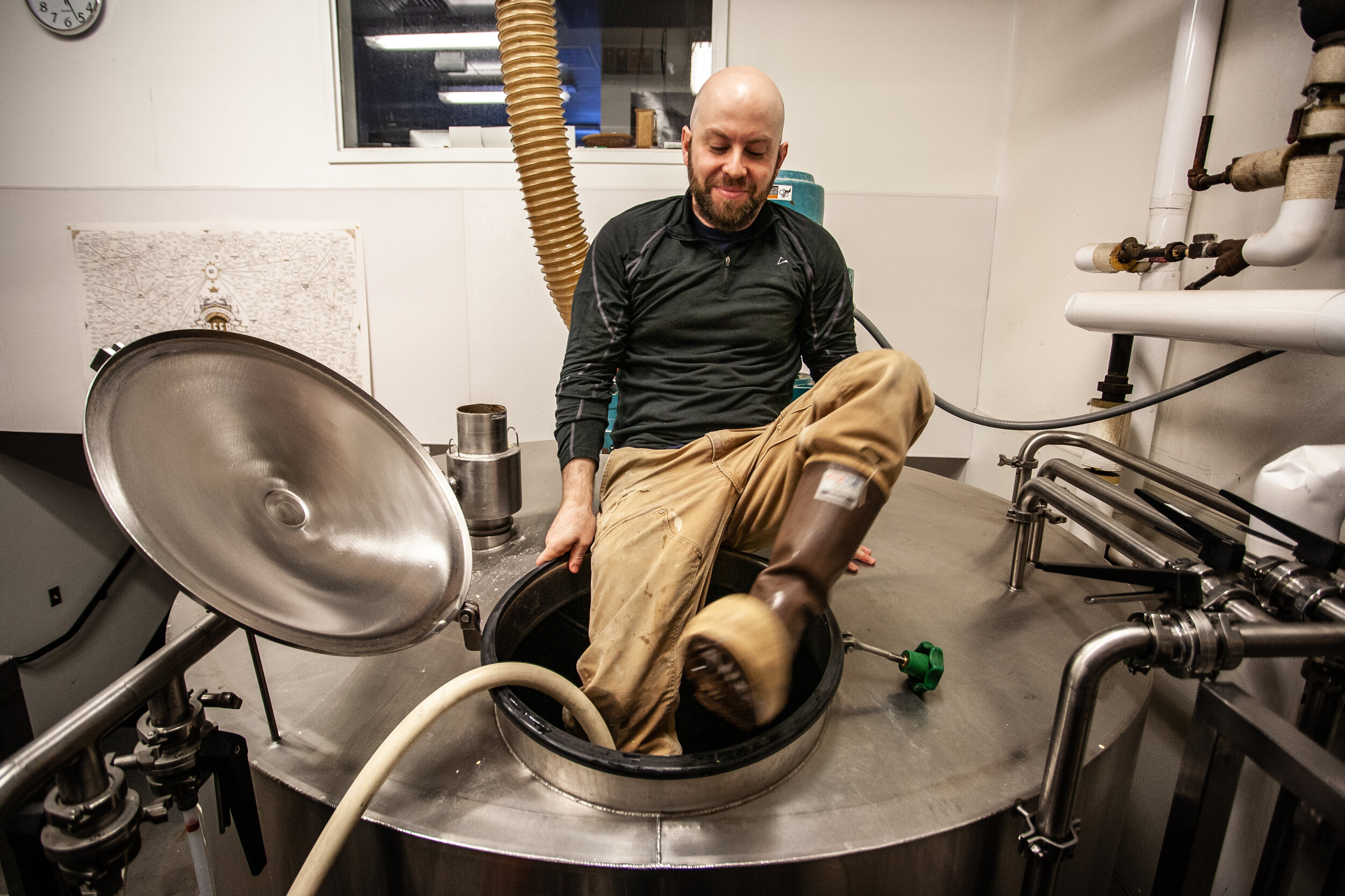
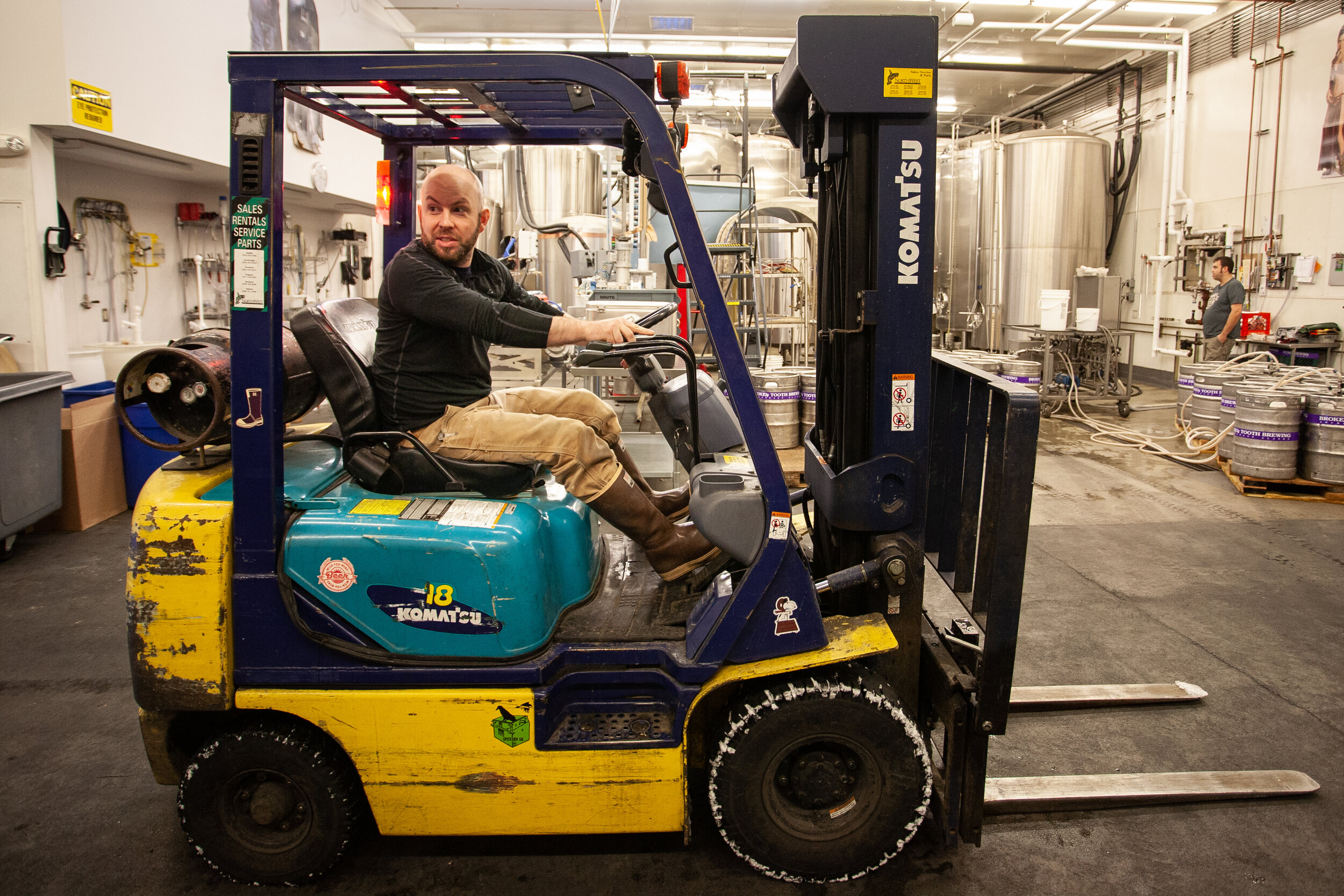
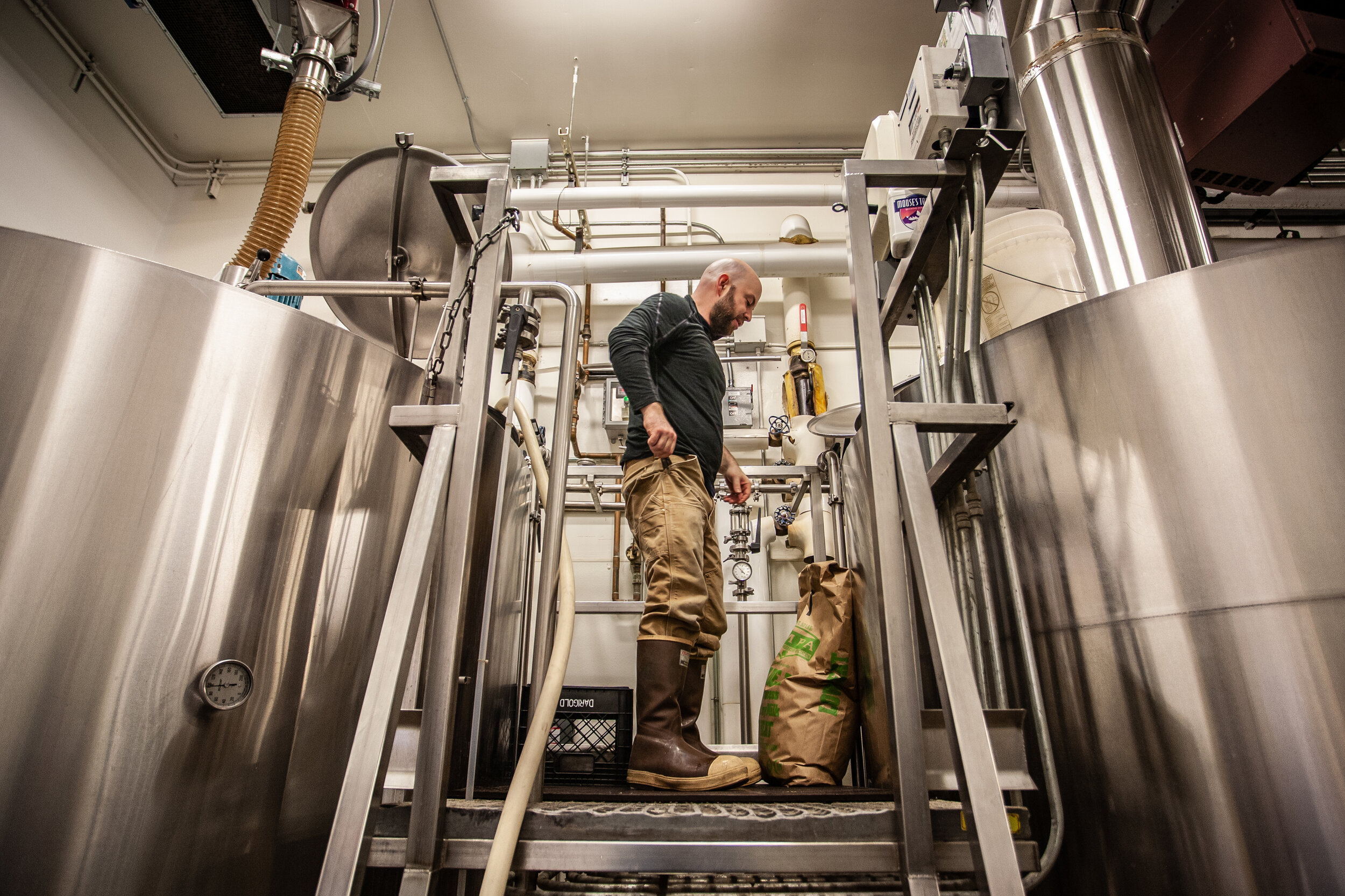

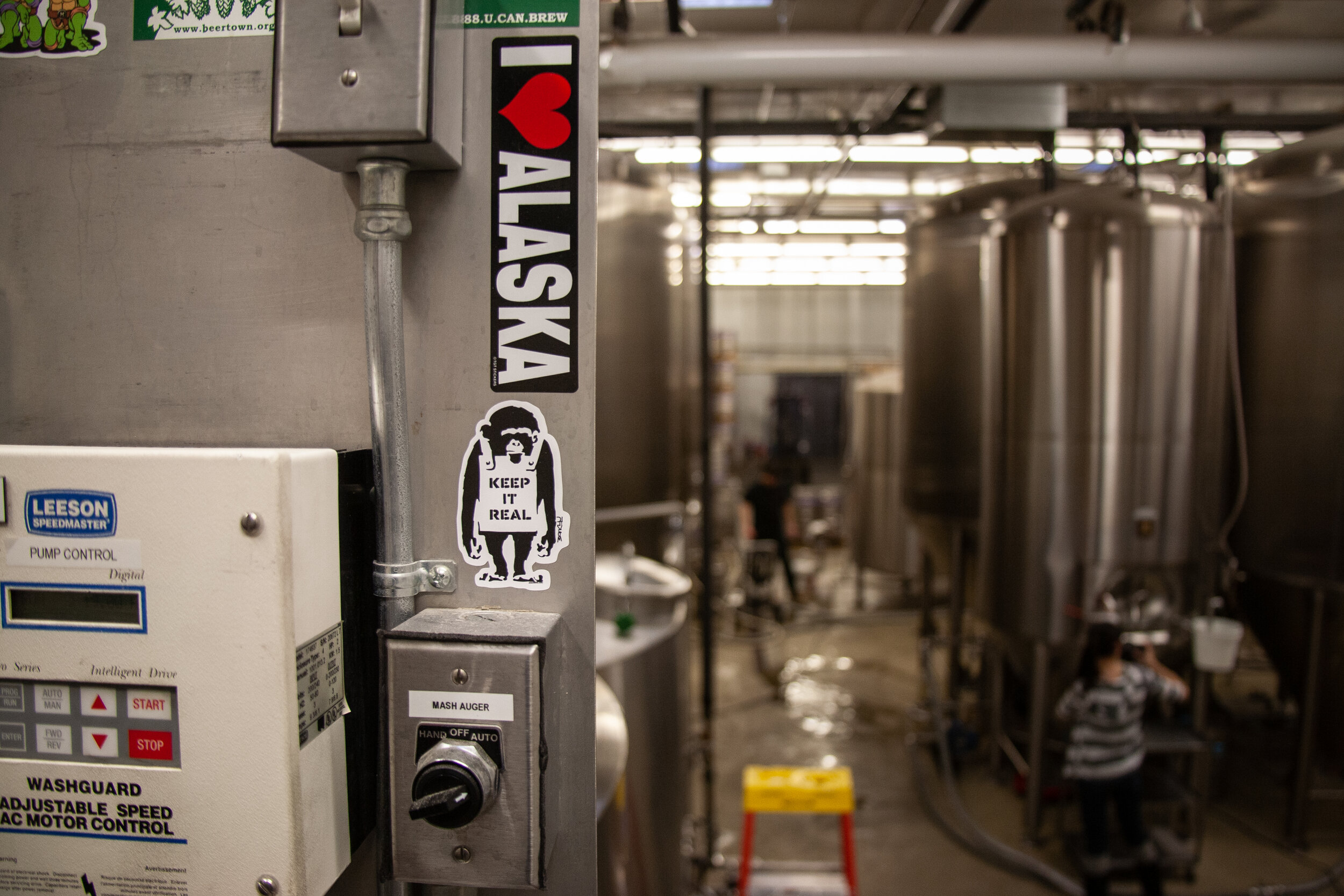

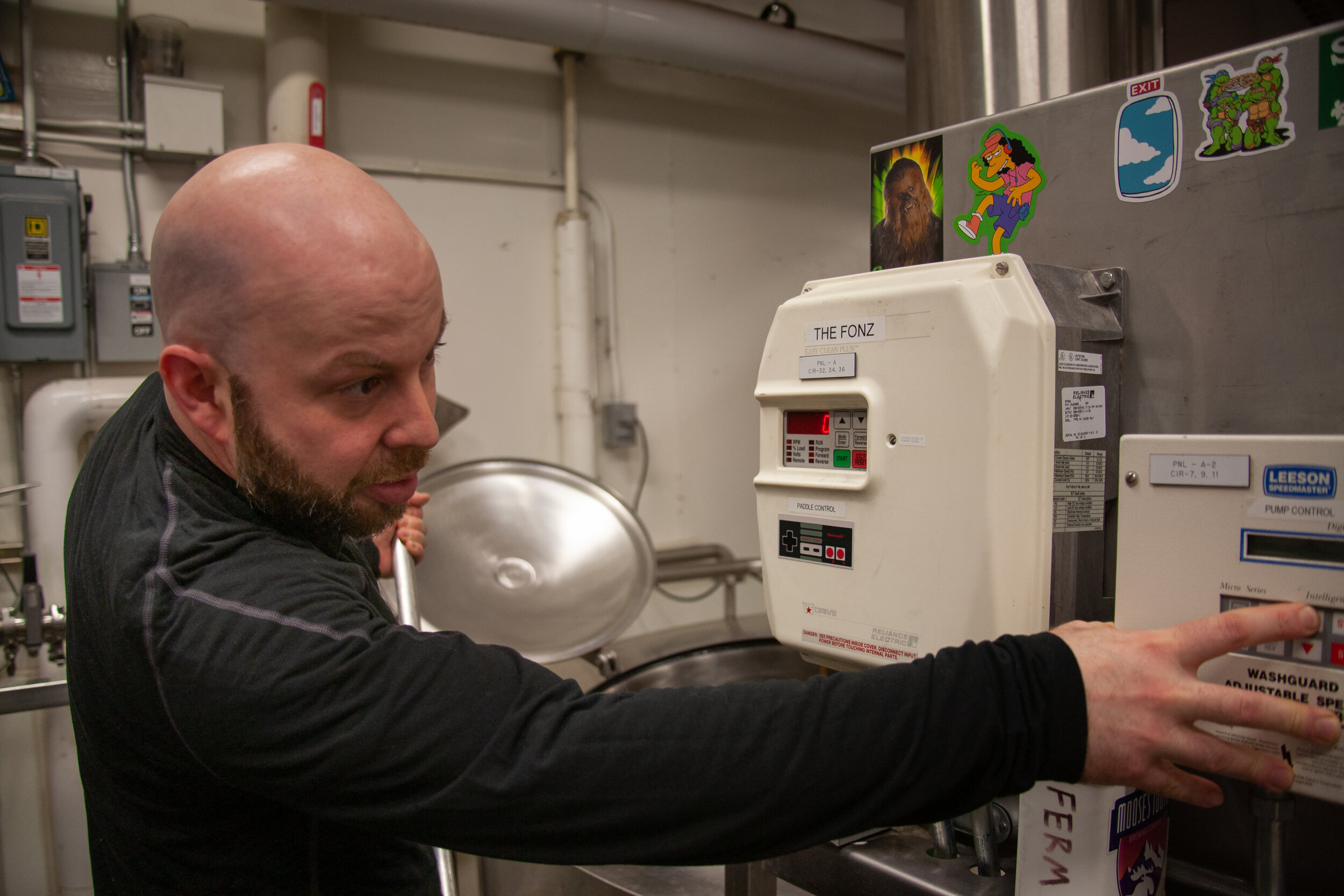

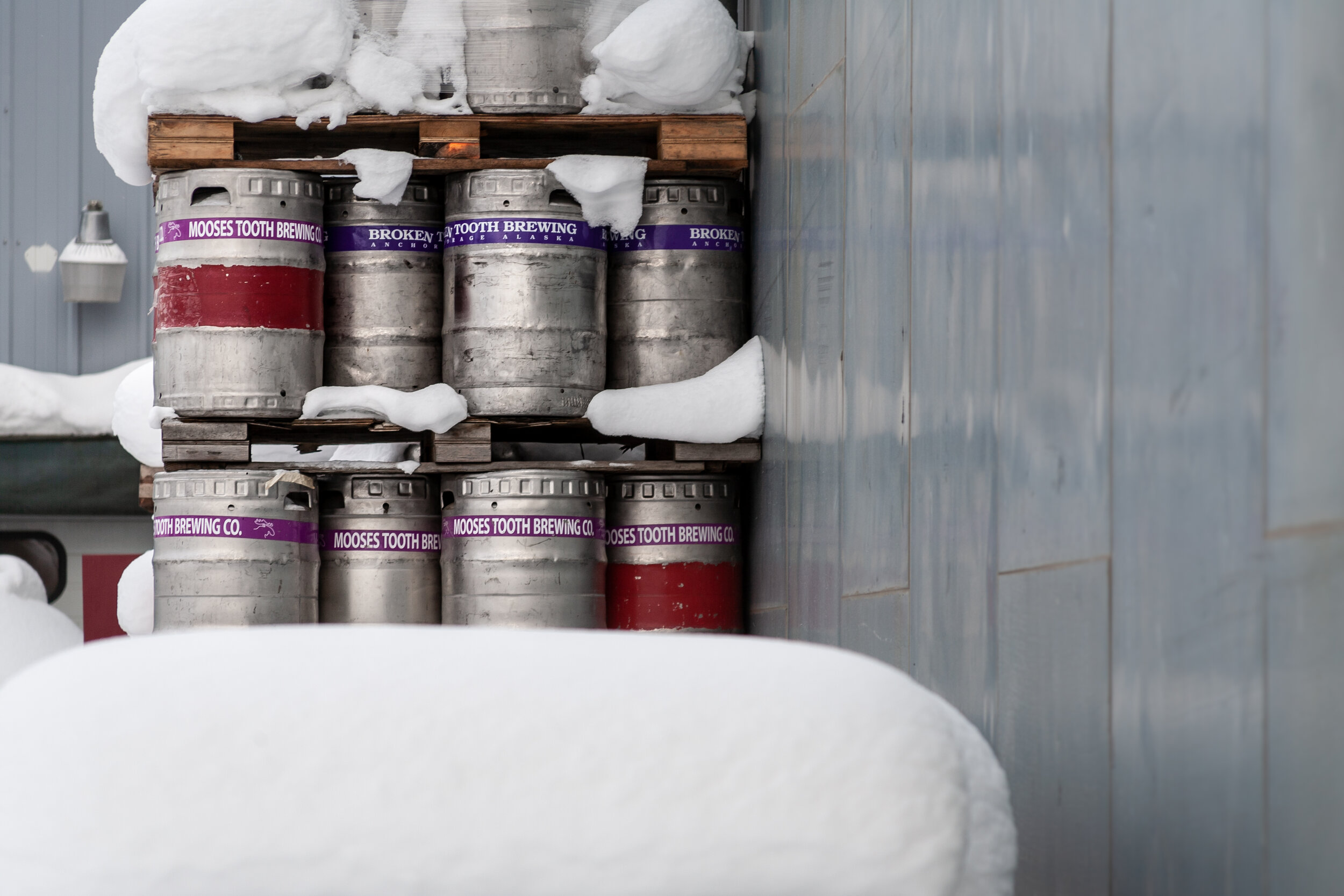
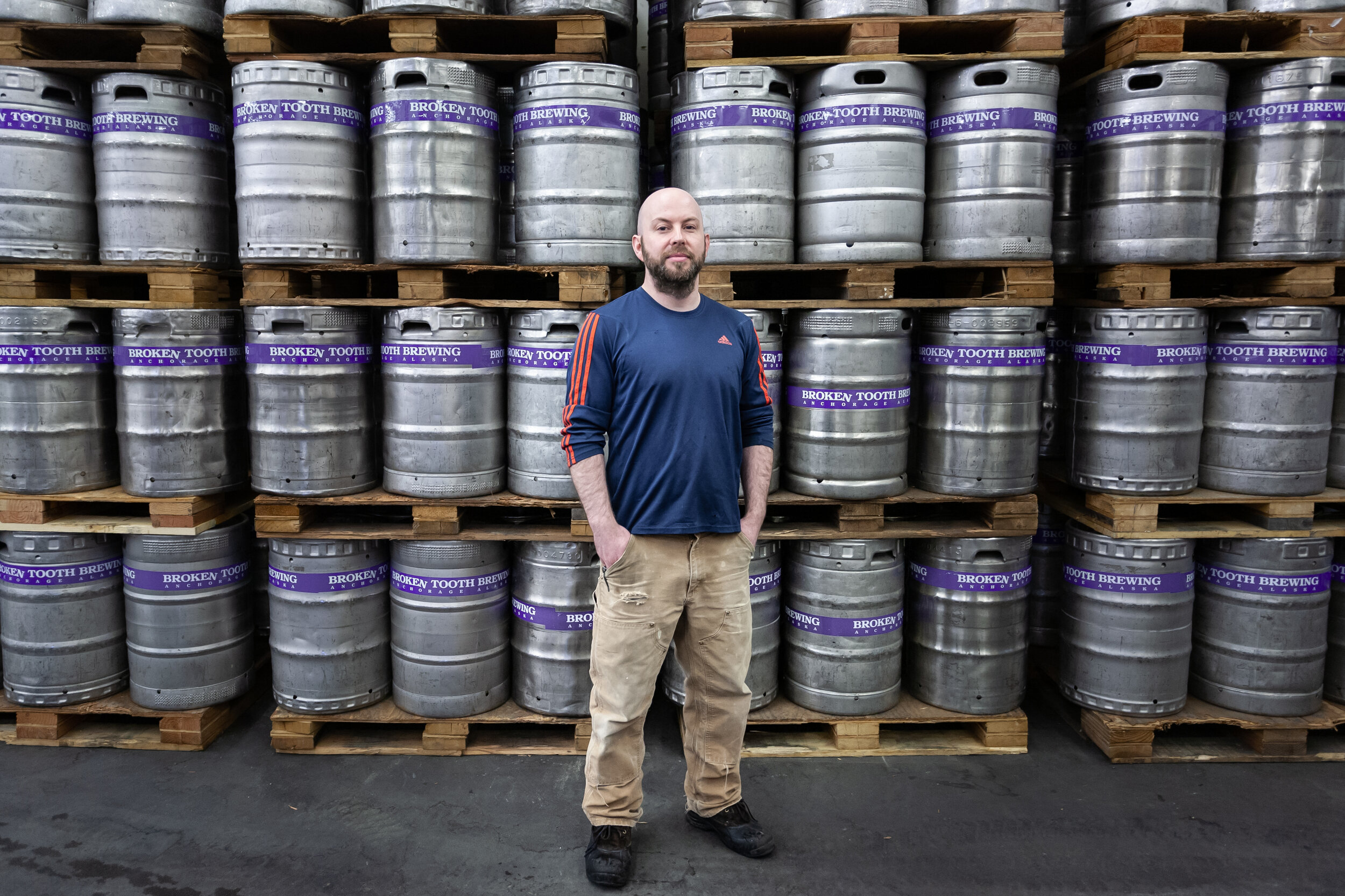


COMMENTS
I'd love to hear your thoughts about this collection of images.
Please feel free to drop me a note.

